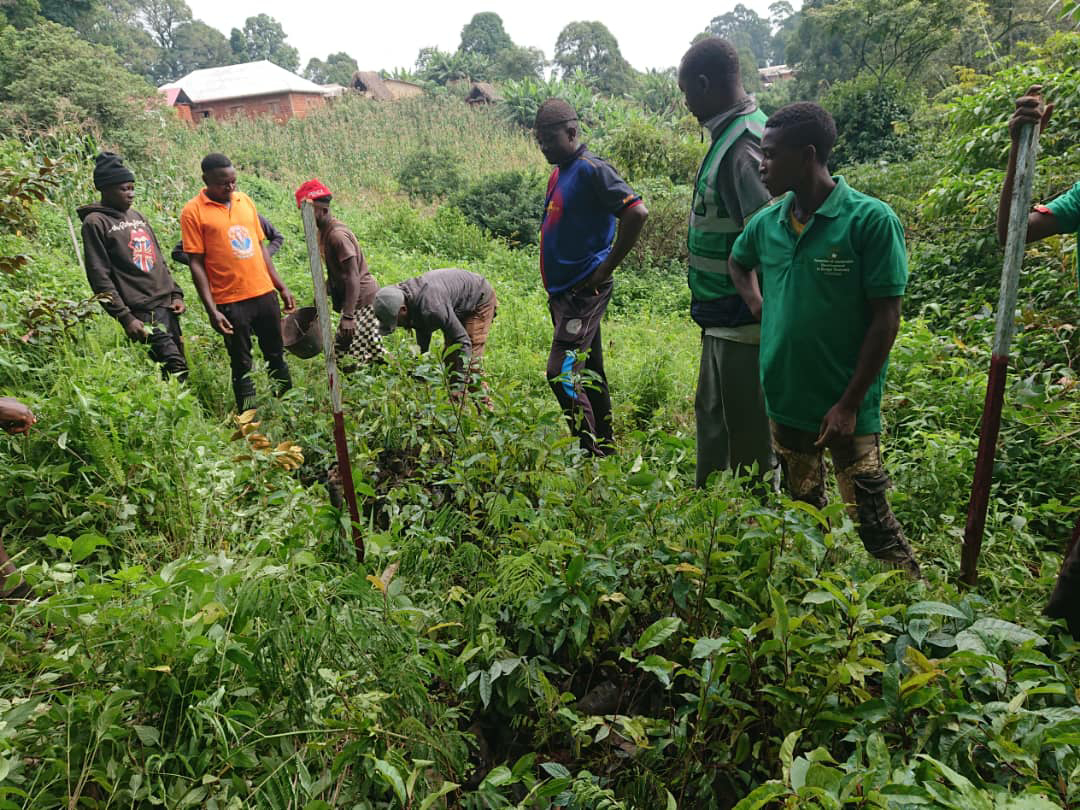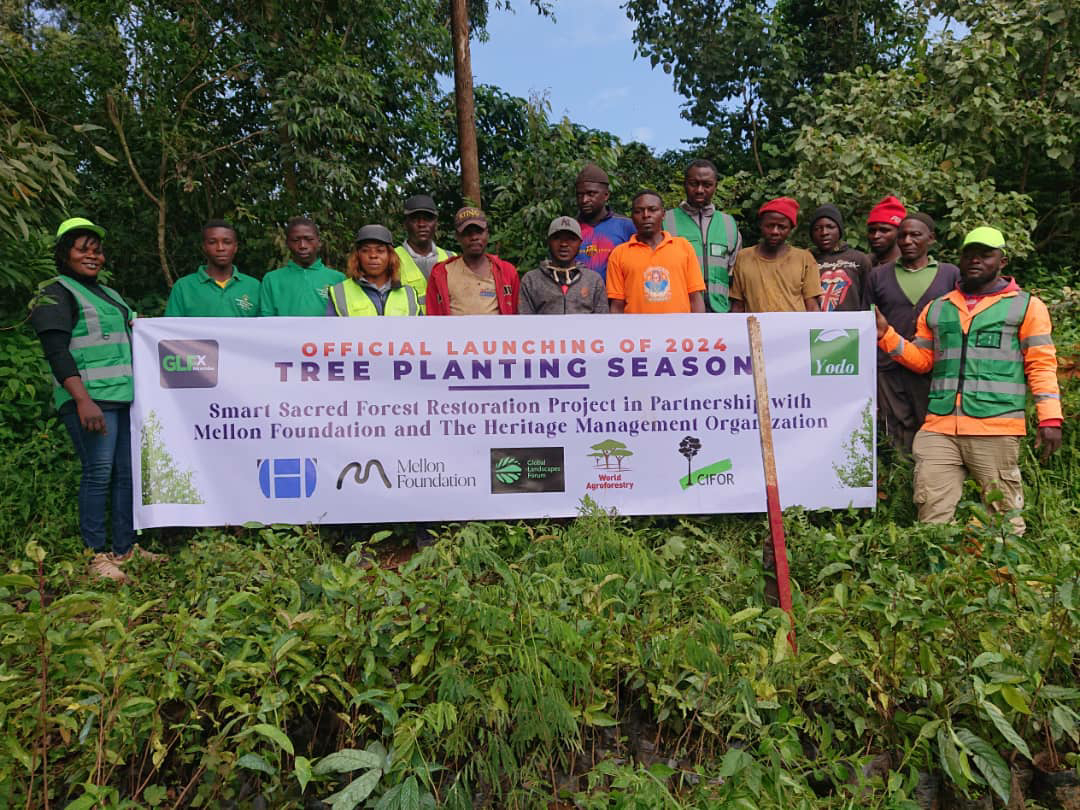Fai Cassian Ndi, Coordinator of the Youth Development Organization (YODO), has raised alarm over the rapid depletion of sacred forests in the North West Region of Cameroon, with 90% of these areas having lost more than 60% of their surface area. The situation in the Nkambe plateau Donga Mantung Division is particularly dire, with these crucial biodiversity hotspots disappearing at an alarming rate.
In response to this environmental crisis, a two-year project has been launched in Nkambe to engage local communities and traditional institutions in the restoration of these sacred forests. The initiative, supported by the Andrew Mellon Foundation and the Heritage Management Organization through the HerMap Africa Project, aims to plant over 25,000 economic and environmentally friendly trees across six sacred sites. Additionally, the project plans to establish six school gardens to further promote environmental education and conservation.
Speaking at the project's launch on July 23, 2024, at the Binshua Sacred Forest, Ndi expressed gratitude to the funding organizations for their support in preserving these culturally and ecologically significant areas. He highlighted that these sacred forests not only serve as carbon sinks but also hold immense cultural value for the local communities, acting as sites where traditional practices and values are passed down through generations.
YODO Project Manager Nfor Blessing Mbontu emphasized the importance of restoring these forests, describing them as a vital part of the local economy and a key source of medicinal plants. She noted that the sacred forests are integral to the cultural heritage of the region, particularly the Wimbum cultural heritage, and play a crucial role in maintaining biodiversity by providing habitats for various species of mammals, birds, and amphibians.
The North West Region's traditional communities have long held a deep connection with nature, protecting sacred forests and streams as part of their cultural and religious practices. Historically, these areas were safeguarded from activities like logging, except for specific purposes such as construction or rituals. However, the absence of legal protection and increasing human pressure have led to significant degradation.
The current challenges facing these sacred forests include land clearing for agriculture, charcoal production, and the unsustainable harvesting of Prunus Africana bark. The lack of legal instruments to protect these areas has exacerbated the problem, leading to a gradual loss of this vital cultural and natural heritage. Moreover, the influx of different cultural and religious beliefs has further complicated conservation efforts, with some individuals cutting down trees for monetary gain or to challenge traditional beliefs.
Protecting and restoring these forests is essential for meeting the goals of the United Nations Convention on Biological Diversity's Post-2020 Agenda.
By Nji Ignatius and Bakah Derick with field reports
Email: hilltopvoicenewspaper@gmail.com
Tel: 6 94 71 85 77




